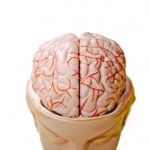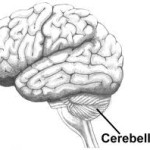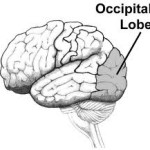Early Detection of Brain Degeneration: Key to Long Term Health
The ability to impact neuro-degenertive disease is determined by early identification. When identified early, lifestyle strategies can be implemented that not only impact the potential progression, but also develop positive changes to help the brain maintain healthy function. The current conventional healthcare model offers very little hope for brain degeneration that has progressed to end-stage disease, such as dementia, Parkinson’s, and Alzheimer’s. Brain degeneration is a progressive condition. The only hope a person has is early detection so that significant changes can be made to avoid the horrors that lie ahead.
The incidence of brain disorders is on the rise. Not only do one in eight senior citizens develop Alzheimer’s but also one in eight children are diagnosed (or misdiagnosed) with a brain development disorder, such as autism, ADD, and ADHD. It is estimated, world wide that 24 million people have dementia. This number is predicted to double every 20 years. Anxiety disorders, learning disabilities, and depression are more prevalent today, while symptoms of poor brain health like sleep disorders, brain fog, mild depression, moodiness have become almost commonplace. Antidepressants (which will fix nothing and do more harm to the brain) are now the second most commonly prescribed medication in the U.S..
Increased age alone is a major factor for all neuro-degenerative diseases, and the practicing doctor must have the ability to not only to recognize the early signs of brain degeneration, but also to implement strategies to change the expression of brain degeneration. In my office all patients undergo additional testing to detect early signs of brain degeneration. When detected, they are given corrective lifestyle strategies to help reduce and eliminate early brain degeneration or impairment. The brain has five major area that need to be evaluated. Each area of the brain has specific signs and symptoms. By evaluating the brain one can know what area or areas are involved in early brain degeneration. With early detection one can now apply the specific lifestyle strategy for that area. The brain has four main requirements to stay healthy: oxygen, glucose, nutrition, and activity. Below you will find the different areas of the brain and the signs and symptoms that go along with it.
Frontal Lobe:
- Much of the person’s personality stems from the frontal lobe.
- Governs emotional drive, motivation, planning and fine motor coordination.
- Involved in ADHD, Depression.
Frontal lobe degeneration:
- Decreased amplitude or slow movements of the muscles.
- Depression
- Mental sluggishness and laziness.
- Poor impulse control.
- Poor social behavior and judgment.
- Poor handwriting.
- Poor cognitive function, such as math or planning skills.
- Poor muscle-coordinated learning such as dancing and playing sport.
Temporal lobe:
- Critical for interpreting sounds.
- Responsible for hearing, speech, memory, emotional responses and distinguishing smells.
Part of the temporal lobe called the Hippocampus; When it degenerates the person can give you specific details about their wedding 30 years ago, but cannot recall what they had for lunch yesterday.
Hippocampus: involved with your circadian rhythm, or the sleep-wake cycle that is responsible for healthy energy in the morning and relaxed state at night.
Symptoms and signs of temporal lobe degeneration:
- Poor memory
- Difficulty hearing with background noise.
- Episodes of tinnitus.
- Abnormal shift of fatigue throughout the day.
- Ongoing episodes of insomnia.
Parietal lobe:
- Primary function is to perceive sensation, such as touch or pressure.
- Interpret sensation, such as texture, weight, size, or shape.
- Integrate input from the skin, muscles, joints, and vision to become aware of the body in its environment.
Degeneration
- Have problems maintain balance in the dark and may have problems perceiving where your arm or leg is.
- Common to get reoccurring injuries such as ankle sprains.
- Women may start to feel unstable in high heels.
Symptoms and signs of parietal lobe impairment:
- Feeling unstable in darkness or thick-heeled or high-heel shoes
- Misjudging where your body is in relation to your enviroment.
- Unable to recognize objects through touch.
- Difficulty perceiving where your limbs are and becoming prone to fall and sprains.
Cerebellum “Little Brain”
Calibrates muscle coordination of movement when you do basic actions, such as putting a spoon in your mouth.
Degeneration:
- Early sign is termination tremors – when you point or reach for a pen. (not at rest, like in Parkinson’s disease)
- Difficulty walking down stairs without holding on to the hand rail.
- Will get car sick or seasick easly.
- May become nauseous if looking at wallpaper, shirts, or rugs with strips or complex patterns.
Symptoms and signs of cerebellum degeneration:
- Episodes of dizziness or vertigo
- Nausea from visual inputs (car sickness)
- Poor balance
- Subtle shaking at the end stage of movement
Occipital Lobe
Processes visual information, such as recognizing shapes, colors, motion, and distinguishing colors.
Degeneration:
- People will have difficulty distinguishing borders of lines with similar colors, or fail to appreciate vivid colors in art.
- Have occasional flashes of light or have visual hallucinations.
- Persistence of a visual image after it has be removed.
Symptoms and signs of occipital lobe impairment:
- Difficulty processing visual information and recognizing shapes, colors and motion.
- Visual hallucinations
- Visual floaters
- Visual
- Persistence or reoccurrence of visual images after it has been removed.
What affects brain function and can cause brain degeneration?
I will be discussing each of the below topics in future articles.
- Stress – Nothing more damaging to the brain.
- Most common stressor in America is sugary high-carb diets.
- Smoking, food intolerances, food allergies, anemia, bacterial gut infections, gut parasites, autoimmune diseases, joint pain and inflammation. Poor digestion.
- Chronic stress decreases the firing of the brain.
- Low oxygen.
- High blood pressure decrease blood flow to the brain.
- Poor circulation and low oxygen: Signs of, cold hands and feet, chronic nail fungus, poor capillary refill time, weak nails, and white spots on the fingernails – will rob your brain of oxygen.
- Gluten sensitivity.
- Leaky gut (see video go to media, video, leaky gut).
Dr. Foley is an Advance Nutritionist/ Chiropractic physician that specializes in nutritional rehabilitation of chronic and hard to manage health conditions. He has practiced over 24 years, lecturing weekly on how to get rid of belly fat, Hypothyroid, Hashimoto’s Autoimmune, Gluten Sensitivity and many other health topics. You can listen to Dr. Foley every Sunday at 2:00 PM central time on his radio show “The Natural Health Care Show” on 99.7 FM Nashville, TN or on the internet “live” at www. 997wtn.com. Past shows are available on his website. Dr. Foley takes a natural approach that is safe and effective. All health care programs are tailor made for the individual person. You can contact Dr. Foley at 5602 Nolensville Pike Nashville, TN 37211 Office Phone: (615) 333-0021 or drbjfoley@comcast.net or www.Facebook.com/Healthandwellnesscenterdrfoley or Twitter @Drfoleybrian





